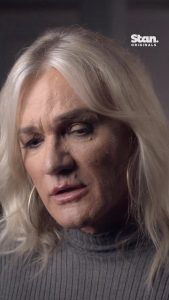Filmmaker Onir, who has given voice to the LGBTQ community
through his several path-breaking movies, is dismayed over the way some of big
Bollywood studio houses are representing the trans and queer community.
In an interview with Opoyi, he says that the
Supreme Court’s 2018 verdict on Article 377 will take time to reflect in the
real world. “You know the thing is that change will not happen overnight. The
Supreme court verdict empowers people to fight for their identity and rights
but that’s just one step,” he said. On September 6, 2018, the Supreme Court had
struck down the draconian Article 377 that criminalised gay sex.
The director of films like ‘I Am’, ‘My Brother…Nikhil’,
‘Bas Ek Pal’ and ‘Shab’, however is not convinced about the need for certain
kind of films based on the queer community. Films such as ‘Shubh Mangal Zyada
Saavdhan’, and ‘Laxmii, initially titled ‘Laxmii Bomb’, are not helping the community at all, he says.
“It’s still problematic when it comes to a queer
community in a country where you still have all these big studios who are
making films like ‘Shubh Mangal Zyada Saavdhan’, ‘Laxmii Bomb’ and the new one ‘Paurashpur’
(‘Milind Soman representing “Third Gender” in that). I have seen
all their stories tries to tell queer’s life, which makes them comfortable.
“Also, there is a huge problem when you don’t
realize that there is a difference between sexuality and gender…a trans role
should ideally be played by trans. I know that in the ideal world everyone
should be able to do everything but for so long, the community has been
disempowered and suppressed. Its’ time to empower them too, at least let them
represent themselves in a film. You cannot have a man playing a trans woman or
a trans,” he said.
While Ayushmann Khurrana-starrer ‘Shubh Mangal…’
talks about gay couple Kartik and Aman who face opposition from Aman’s family,
‘Akshay Kumar-starrer ‘Laxmii’ is a film that revolves around a man who
gets possessed by the ghost of a transgender person.
Giving an example of Akshay Kumar’s film, the 52-year-old says
that the actor doesn’t even understand queer life. “…it does more harm. It
needs an actor who understands, empathizes, and who is not insecure. It cannot
be someone whose main focus is being popular. ‘Laxmii bomb’ is horrible and it
does more disturbance to the community than what it pretends to be” said the
filmmaker.

Onir’s movies are drawn from real
life whether it is ‘My Brother…Nikhil, based on the life of Dominic d’Souza, a
champion swimmer and AIDS patient based in Goa. The film starring Sanjay Suri,
Purab Kohli, and Juhi Chawla was one of the first mainstream Hindi films to
deal with AIDS and same-sex relationships.
In 2006, he released his second film ‘Bas Ek Pal’
with Urmila Matondkar, Sanjay Suri, and Jimmy Shergill. ‘I Am’, which comprises
four short films exploring themes as single motherhood, displacement, child
abuse, and same-sex relationships, was a set of path-breaking films that also
won the National Award in two categories– Best Film and Best Lyrics.
Now he is all set to make a sequel to that film
titled ‘We Are’.
According to the filmmaker, it will be a
celebration of the queer community after Supreme Court’s ruling on Article 377.
“Next year will be 10 years with ‘I Am’ and in
2018, the Supreme Court verdict came on 377 since then I have been thinking
that I need to do something which kind of celebrates that judgment and what it
meant for the queer community. It will be an anthology like ‘I Am’– a
celebration of identity, celebration of love, of queer identities so there will
be one gay, one lesbian, one bisexual, and one trans love story,” he said.
“The reason for wanting to do this as a love story
is because the Supreme Court verdict actually empowers and decriminalizes the
sexual act between consenting adults. It is not what we still recognize as
civil rights, which mean the right to get married, adopt children, and certain
benefits in the corporate and health sector. So, it will also question
those spaces at the same time but will have happy endings,” he said.
Speaking about the cast, Onir says that they are
still in process of writing the final draft. “…but I would like to cast as many
people from queer community as possible so behind the scene I will try to
portray,” he said.
On struggles he faced while making films on LGBTQ,
Onir says, “The biggest problem is finance because again these are not seen as
box-office go-crazy subjects. Here, cinema is mostly seen as a medium to cater
to popular demand and we have forgotten that cinema is also about enlightenment
and is a form of art. It has become only a form of entertainment so that
becomes a problem.
“Distribution is always a problem when you have a film like this because
you are always competing with big production houses to get rights to theatres
and prints and also these films only work on word of mouth publicity. Though
everyone now keeps saying that with these platforms (OTT) it becomes easier but
if you really look at the percentage of queer representation even on those
platforms, it is marginal compared to other products. Also, you do not really
have a community speaking for themselves,” he said.
But turning a producer must have done well
for Onir?
“Finance is always difficult because of the
subject but having said that we have a Canadian production house ‘Fae Pictures’
who have already tied up with Anticlock Films as a producer so there might be
a possibility that we produce this film as a Canadian film just like Deepa Mehta’s ‘Funny Boy’. I am looking at
that option. Similarly, I am in talks with an Australian production house for
another film to do it like an Indo Australian project. I feel that it is
becoming important to look for partners in countries where cinema is treated as
a form of art,” said Onir.
He also says that because of the Canadian
connection, right now he is working with the Canadian writer-director for ‘We
Are.
Finally, after all these years and films that have made people think, Onir still feels
that the mainstream industry should have little more acceptance towards films
that they make.
“I have my own space in the Hindi film industry and I have worked with a lot of
mainstream actors too who have chosen to be part of the kind of narratives I
have done so there is a change of perception for sure but I feel the industry
could be a little more responsible and supportive for films like what we do,”
he sums up.






